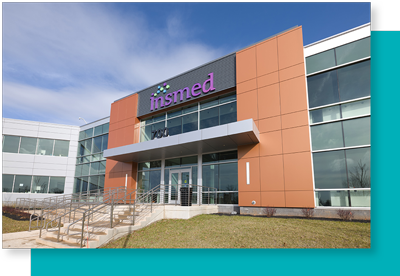
Barclays upgraded Insmed to Overweight, raising the price target from $40 to $63, reflecting optimism about the company’s lung therapy, brensocatib.
Brensocatib’s late-stage study showed statistically significant reductions in the annualized rate of pulmonary exacerbations, highlighting its potential in treating non-cystic fibrosis bronchiectasis.
Despite high R&D costs and long-term debt, Insmed’s financial stability and the success of brensocatib in the Phase 3 ASPEN study have contributed to its favorable rating upgrade and a 118.45% increase in stock price.
Barclays’ recent upgrade of Insmed (NASDAQ:INSM) to Overweight, with a revised price target of $63 from $40, underscores the optimism surrounding the biopharmaceutical company’s prospects. Insmed, known for its focus on serious and rare diseases, particularly in lung conditions, has made headlines with its experimental lung therapy, brensocatib. This therapy targets non-cystic fibrosis bronchiectasis, a chronic lung condition with limited treatment options, positioning Insmed at the forefront of addressing this unmet medical need.
The significant positive outcomes from the late-stage study of brensocatib have been a key driver behind the stock’s impressive performance. Patients treated with brensocatib showed statistically significant reductions in the annualized rate of pulmonary exacerbations compared to those receiving a placebo. This breakthrough not only highlights the potential of brensocatib to transform the treatment landscape for non-cystic fibrosis bronchiectasis but also underscores Insmed’s capability to pioneer effective therapies for complex lung diseases.
Following the announcement of these study results, Insmed’s stock price experienced a remarkable surge, more than doubling in value. This surge reflects the market’s high expectations for brensocatib, which is estimated to generate peak revenues between $1 billion and $5 billion. Such financial projections indicate the therapy’s significant market potential and Insmed’s promising future in the biopharmaceutical industry.
Despite the challenges of high Research and Development (R&D) costs and substantial long-term debt, Insmed maintains a solid short-term liquidity ratio. This financial stability, combined with the groundbreaking success of brensocatib in the Phase 3 ASPEN study, has contributed to the company’s favorable rating upgrade. The stock’s performance, with a 118.45% increase and reaching a 52-week high of $50.1, further validates the optimism surrounding Insmed’s growth trajectory and its ability to capitalize on the large, untapped market within the lung disease sector.
In summary, the upgrade by Barclays, along with the promising results from brensocatib’s late-stage study, paints a bright future for Insmed. The company’s focus on addressing critical needs within the lung condition treatment landscape, coupled with its financial resilience, positions it well for continued success and growth in the biopharmaceutical industry.

